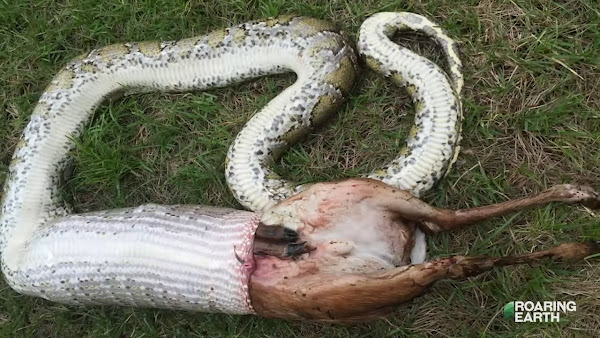The fear of giant invasive pythons taking over America has been a hot topic of debate in recent years. With their ability to reproduce rapidly and consume large amounts of food, the thought of these reptiles roaming the streets of the United States is a frightening prospect. However, the likelihood of this happening is slim. Pythons are native to Africa, Asia, and Australia, and were introduced to the United States as pets. Unfortunately, some pet owners released their pythons into the wild when they became too big or too difficult to handle, and these snakes have since adapted to the warm climates of South Florida and southern Texas. Some reports estimate that there are now over 30,000 wild pythons in the US, with the majority of them living in the Everglades National Park.
It’s true that these pythons have a voracious appetite and are capable of consuming a wide variety of animals, including mammals, birds, and even alligators. However, their potential to spread throughout the country is limited by the climate. Pythons need warm temperatures to survive, and their current range is restricted to parts of Florida and Texas where the climate is suitable. It is highly unlikely that they would be able to survive in other parts of the country where the temperatures are too cold.
In addition, the population of these pythons is being aggressively managed by wildlife organizations. Hunting and trapping programs have been implemented to reduce their numbers, and efforts are underway to educate people about the dangers of releasing pet pythons into the wild. The fear of giant invasive pythons taking over America may be a scary thought, but it is highly improbable. The availability of suitable habitats is limited, and population management programs are in place to ensure that these reptiles do not spread beyond their current range. It is therefore safe to conclude that an invasion of giant pythons is not likely to occur in the United States.













